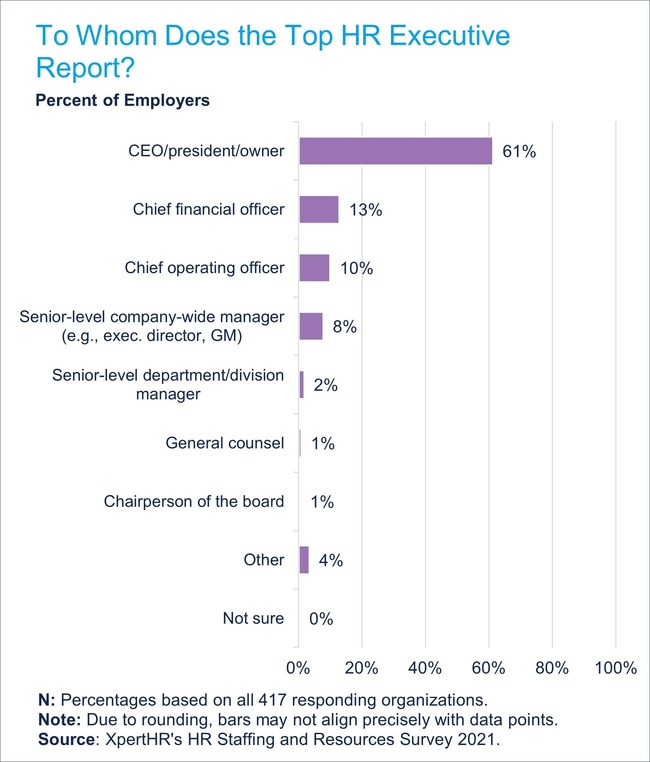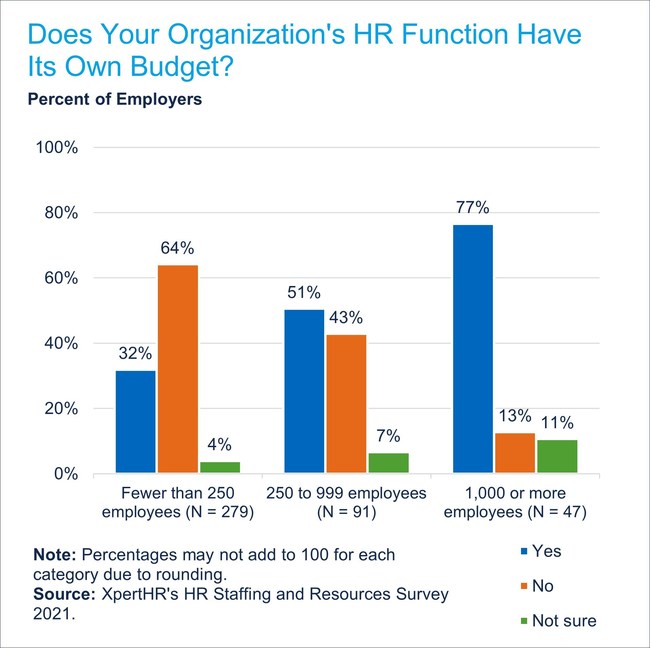Survey report examines HR reporting structure, the HR staff-to-employee ratio, HR budgets, and more
At about three-fifths (61%) of organizations, the top HR executive reports to the chief executive officer, president, or company owner, according to 417 US employers responding to XpertHR’s HR Staffing and Resources Survey 2021.
At some organizations, HR may report to the CFO (13%), COO (10%), a senior-level company-wide manager (e.g., executive director, general manager) (8%), senior-level department/division manager (2%), general counsel (1%), chairperson of the board (1%), or some kind of “other” write-in option (e.g., city manager, CIO) (4%). Fewer than 1% of respondents were not sure.
HR Technology News: Kaseya’s Annual MSP Benchmark Survey Reveals Remote Work and Increased Cybersecurity Threats


“The survey results show that at a majority of organizations, HR has a direct line to a topmost company executive, rather than needing to go through an intermediary such as the CFO” says Andrew Hellwege, Surveys Editor, XpertHR, “which is probably a reflection of the importance employers place on human resources in today’s complex working world.”
The survey also covered HR staffing levels and found that the median ratio of HR staff to employee headcount is 1.5 full-time equivalent HR staff for every 100 workers, a figure which varies by workforce size. While employers with fewer than 250 workers reported a median of 2.2 full-time equivalent HR staff for every 100 workers, this figure drops to 1.0 for firms with 250 to 999 employees and to 0.9 for organizations with a staff of 1,000 or more.
HR Technology News: AIB International Debuts Pandemic Prepared Certification for Corporate Offices
“The inverse relationship between workforce size and the HR staff-to-employee ratio highlights economies of scale, as larger organizations are able to achieve necessary HR results without needing the same proportion of HR staff as smaller companies,” notes Hellwege.
Furthermore, the survey found that about two in five (41%) organizations have a separate budget for their HR department, compared with 54% that do not. (Five percent were not sure.) However, these findings also vary by workforce size, with larger organizations more likely to have HR budgets than smaller ones. While 32% of employers with fewer than 250 workers have a budget for their HR function, this percentage increases to 51% for firms with 250 to 999 employees and to 77% for companies with 1,000 or more workers.
“These findings illustrate that the likelihood of having a separate budget for HR grows as workforce size increases,” notes Hellwege, “which one might expect given larger organizations’ higher levels of overall spending and resources.”
HR Technology News: FutureSolve Combines Innovation & Advisory Services Shaping the Future of Work
